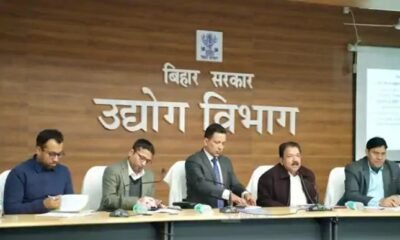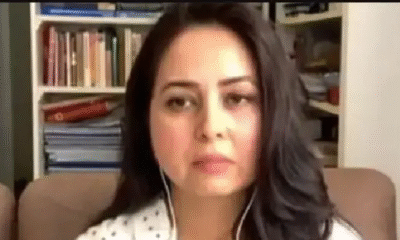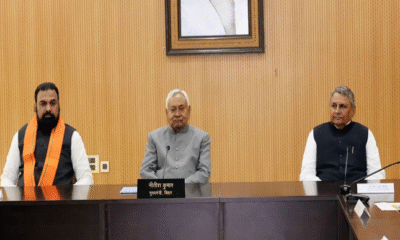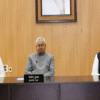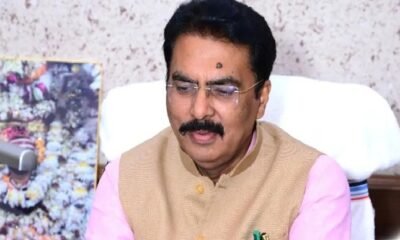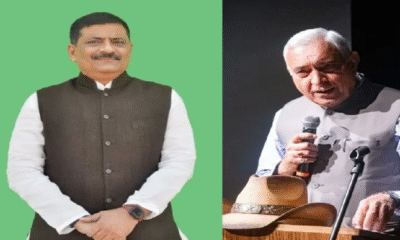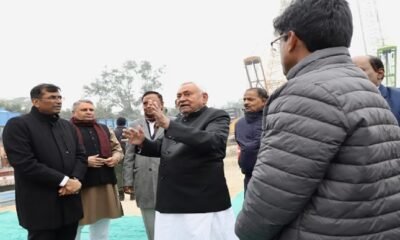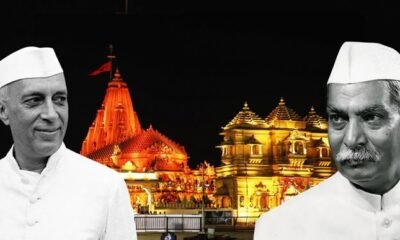Bihar
Improvising Healthcare in Bihar, Striking the Perfect Equilibrium
Akash Kumar Singh : One of the bills, recently introduced in Parliament sought to entitle all the citizens of the country with the right to free and universal healthcare. Just like the right to education, healthcare needs to become a binding right in the country. The legendry English writer H.G. Wells once quoted, “A federation of all humanity, together with a sufficient measure of social justice, to ensure health, education, and a rough equality of opportunity to most of the children born into the world, would mean such a release and increase of human energy as to open a new phase in human history.” I believe that social justice and other factors depend largely on the condition of health and education in the nation-state. Besides, all the welfare states around the world believe that health and education are the two most basic parameters of gauzing the development index of the states.
National capital Delhi shut down till 31st March
The idea of thinking about and working on such legislation lies back in the story of my migration from my native state Bihar to another state, due to the absence of schools and healthcare facilities in my region. There was not a single healthcare centre – be it private or public within miles of my residence. For a family whose kids used to frequently fall ill, it has no option other than moving out from the state, without any effective means of survival. As Bihar is celebrating its 106th foundation day, let us take a look at the condition of healthcare in the state and the ideas that we need to work upon to make the state the one with ideal healthcare facilities.
When it comes to the domain of public health, Bihar is one of the most backward states – with fragile and inefficient infrastructure. According to the current government’s one of the recent affidavits, there is a shortage of 47% doctors, 70% nurses, 72% of lab technicians and assistants, and 58% pharmacists. Bihar has also been a house to live taking epidemics. Every year hundreds of kids leave the world from acute encephalitis syndrome (AES), locally known as Chamki Bukhar. The country has seen the havoc wreaked by the disease last year and the rickety and flea-bitten health machinery to cope up with it. By the first half of 2019, it claimed 117 lives in Bihar. Another factor that worsens the health in Bihar is the factor of massive malnutrition. According to a disease profiling research, malnutrition is still the biggest causative agent of pooer health and diseases in Bihar, occupying the top post. Interestingly, the factor has occupied the top post for decades and the conditions haven’t improved!
Values of Social Distancing and Gratitude
Another loophole is not inherited but acquired. It refers to the daily habits of the citizens of Bihar. These are the elements of lifestyle and everydayness. According to the same research, air pollution, tobacco, and alcohol and drug consumption contribute to 11.6%, 4.8%, and 2.3%, besides others. Bihar and Muzaffarpur – two Bihar cities figure up in the top 30 most polluted cities of the world. Also, in spite of Bihar being a dry state and massive social campaigns built up around tobacco prohibition, a greater population in Bihar still consumes liquor and almost every other citizen consumes tobacco, in various forms.
The disinterest of the state government is a very discouraging trend. Health being a state subject needs to be focussed on by the government on a top priority basis. The government needs to take multiple state-focuses as well as civil society focussed approaches to improve the state of public health in Bihar. Firstly, the government will have to introduce a binding ‘Right to Health Act’, to ensure that regardless of everything, people of the state get unhindered and complete access to health. The central government has yet been unable to introduce similar legislation, numerous might be the reasons. Just like the Right to Publis Service act of the Bihar state government or the Right to Education of the union government, Bihar needs to introduce legislation ensuring the right to health. The economic burden might be an issue, which can be addressed through mechanisms like health cess, support from the union, or cutting budgets of other sectors. Secondly, the nutrition of the citizens, especially children needs to be improved through improvised methods. These methods, anyways, will have to be multisectoral. The Bihar State Nutrition Action Plan 2019-24 seems to be promising in this regard. However, the success of the plan is based on intention and implementation by the state government. Also, the efficient implementation of the ICDS by the central government becomes crucial. Thirdly, The government needs to increase the pace of raising up private health centres, along with the public ones. According to the Ministry of Health and Family Welfare, there here are only 2,146 public health centres/hospitals in Bihar, catering with 17,796 beds. The state of Bihar does not even have better private hospitals. The number of full-fledged and efficient hospitals in Bihar is very meager. So, there is a need to help the private sector to come up with health centres. Needless to say, the rates of these private health centres must be regulated by the government.
Fourthly, a number of diseases are region-specific, to be precise – state-specific. Diseases like Chamki Bukhar are largely exclusive to Bihar and the medical practitioners have failed to find out the actual reason and cure for the disease. Here, research has a major role to play. Ther is no single major health research institute in the state, in spite of a population of around 100 Million! The government needs to build up a major medical research centre in the state, that focuses on the diseases and health of the state. The final approach needs to be civil society oriented. As we have seen in the example of the liquor ban that government steps do not prove to be much fruitful. Civil society is the most effective in addressing the issues of the everyday lifestyles of the people, which are largely social constructs. The government needs to promote civil society organisations dedicated to health and independent health activists to strengthen this mechanism. Bihar is predominantly a feudal society, where communitarian bonds and cultural identities are very strong. We need to take advantage of these. Gandhiji used one of these factors to promote harmony and eradicate untouchability from the state during the 1934 devastating earthquake in Bihar. Giving a press statement on the earthquake that hardly hit Nepal and Bihar, Gandhi argued that the earthquake was “a divine chastisement for the great sin we have committed against those whom we describe as Harijans”. According the father of the Nation, god punished Biharis because they practised untouchability against Dalits. This statement became an issue of the face-off between Gandhi and Tagore. Tagore wrote to Gandhi and termed it to be a “painful surprise” at “this kind of unscientific view of things”. Not irrational, but the similar cultural ethos and existing communitarian bonds can be explored and exploited to ensure the best attainable health infrastructure in the state.
Summing up, the idea is to establish an equilibrium between two different opposites on various levels in order to improve healthcare in Bihar. First is shooting off a fine balance between the end of approaches. A combination of resource allocation based and behavioral approaches, in an equilibrium need to be implemented in order to improve healthcare. Second is striking the balance between the public and the private sectors of healthcare. The third similar approach is bringing together and combining the efforts of the two major pillars out of the five pillars of Indian democracy – the executive government and the civil society. Fourthly, we need to establish a balance of focus on the present and the future of healthcare in the state. It implies, improving the existing infrastructure and raising the new ones like state-centric medical research centres and improvised hospitals. By striking such balances, I believe that the state would be able to overcome most of the miserabilities and could very well become a role model for other states.



